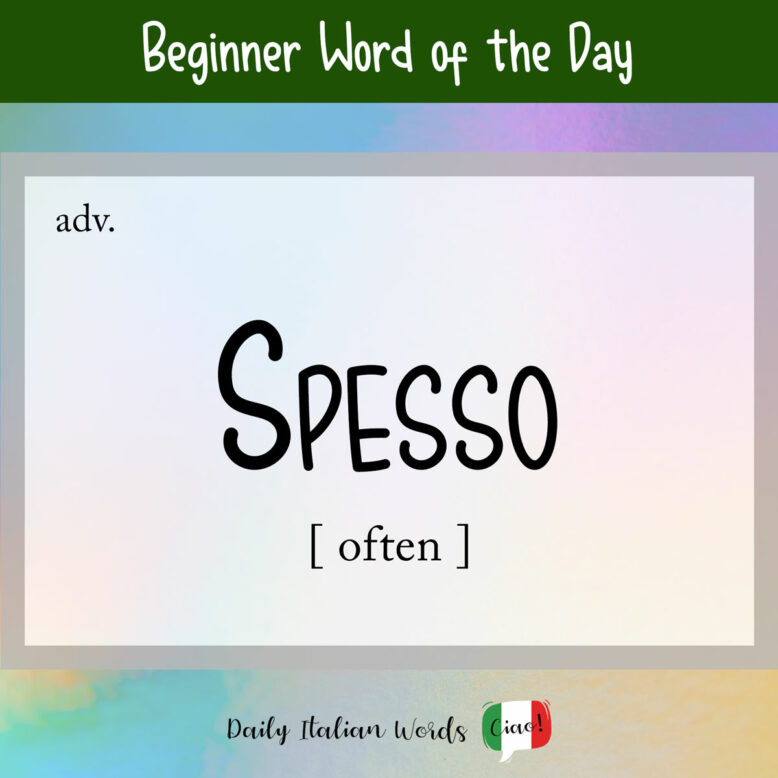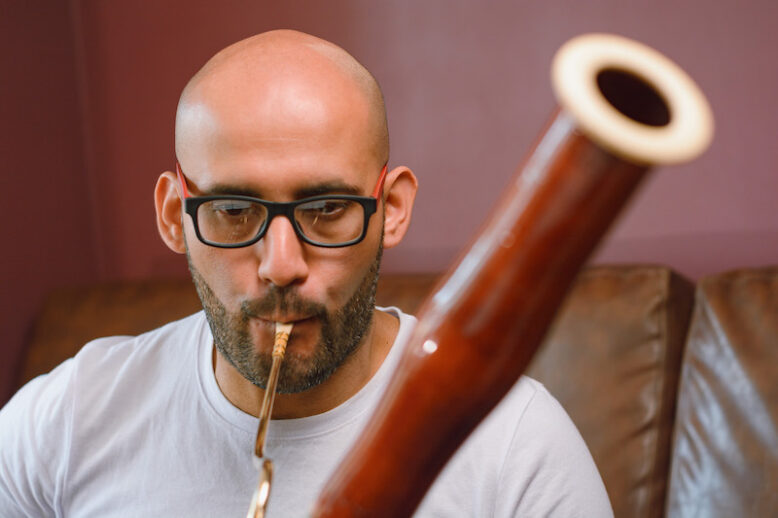If you want to say that you carry out an activity often or frequently, you can always rely on the useful adverb spesso in Italian.
spesso
often

The adverb originates from the adjective spesso, which means “thick,” sharing both pronunciation and spelling. This, in turn, can be traced back to the Latin word spissus.
Spesso indosso dei maglioni spessi.
I often wear thick sweaters.
Spesso is a highly versatile adverb, as it can be positioned in various places within a sentence, whether before or after a verb, or even at the very beginning.
Sento spesso i miei genitori.
I’m often in touch with my parents.
Spesso chi beve rischia di fare un incidente.
Often those who drink risk having an accident.

Sempre più spesso is an expression that means more and more often. Sempre literally means always or still while più means more. Of course, by replacing più with meno (less), you get the opposite expression: sempre meno spesso (less and less often).
Andiamo sempre più spesso in montagna.
We go to the mountains more and more often.
The superlative form spessissimo is simply another way of saying molto spesso (very often).
If you want to ask “how often” something happens, you can say Quanto spesso…?
Quanto spesso vai al cinema?
How often do you go to the cinema?

In conclusion, we have the expression spesso e volentieri, which idiomatically denotes that something occurs “very often.” While volentieri literally translates to “happily / gladly / willingly” in English, it’s worth noting that the recurring event in question may not necessarily be a joyful one, as illustrated below.
Spesso e volentieri avvengono incidenti mortali su quest’autostrada.
Fatal accidents often happen on this highway.
Some possible synonyms for spesso include frequentemente (frequently), quasi sempre (almost always), and ogni due per tre (literally “every two of three”).
Heather Broster is a graduate with honours in linguistics from the University of Western Ontario. She is an aspiring polyglot, proficient in English and Italian, as well as Japanese, Welsh, and French to varying degrees of fluency. Originally from Toronto, Heather has resided in various countries, notably Italy for a period of six years. Her primary focus lies in the fields of language acquisition, education, and bilingual instruction.


